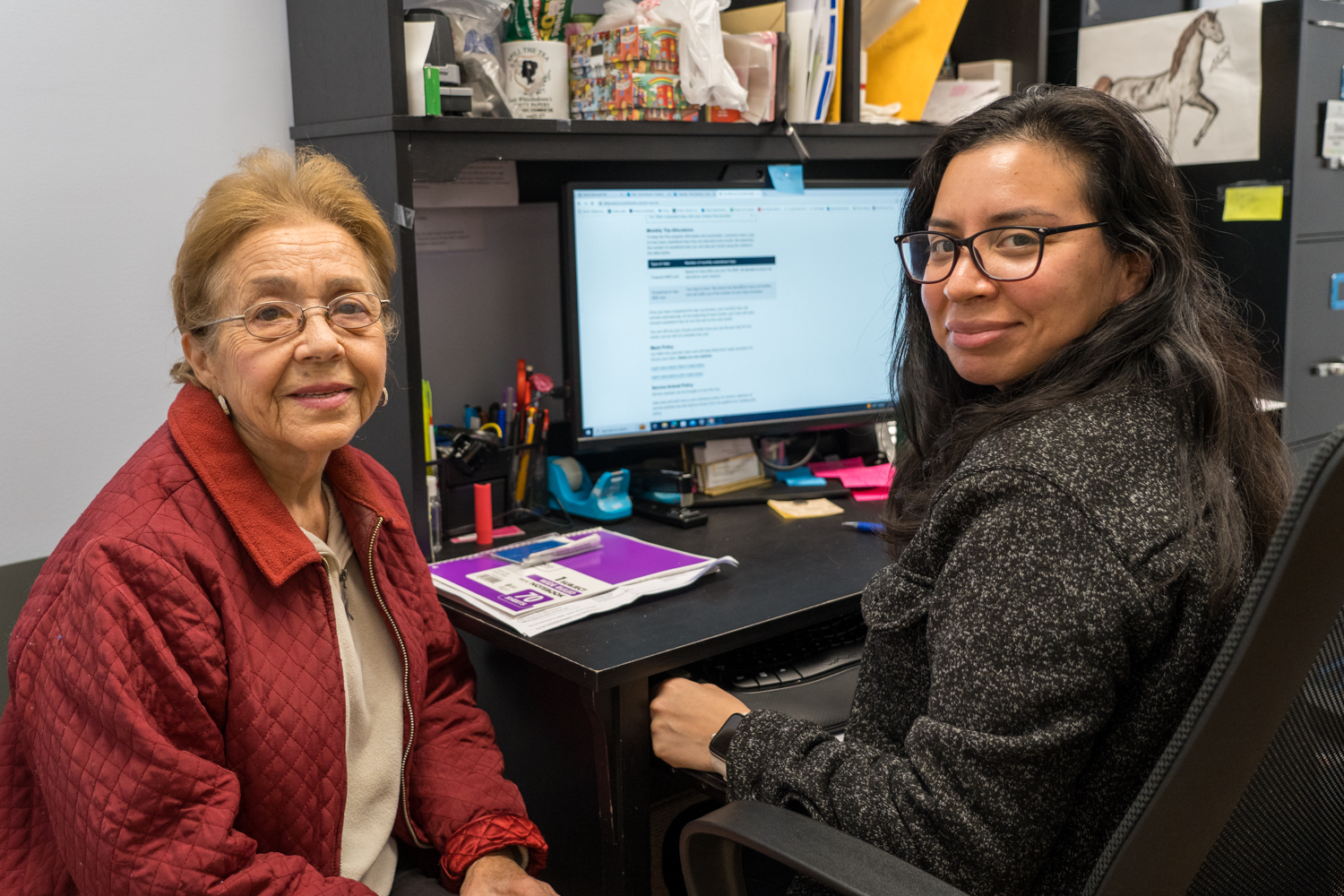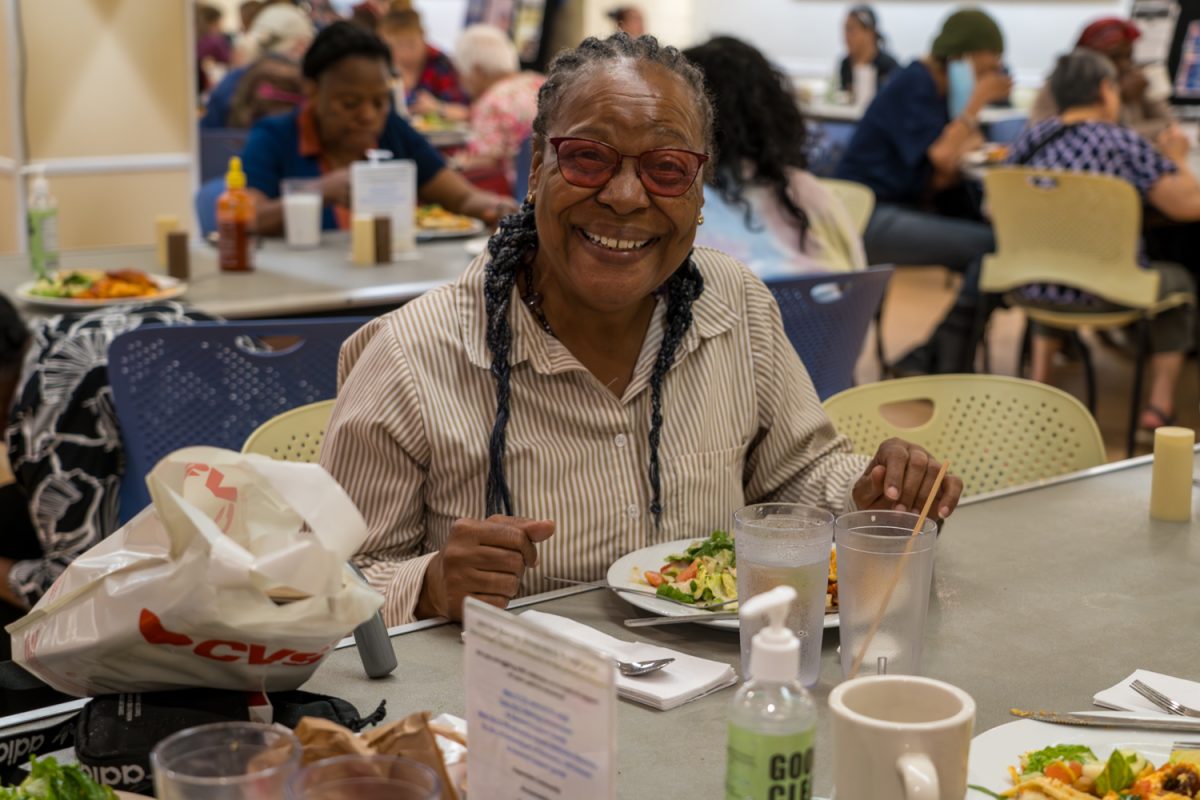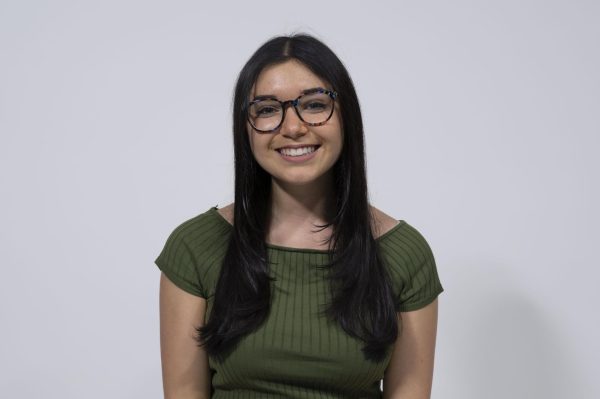Down a few stairs inside a historic church at the end of Newbury Street lies what some say is the best spot in the city for lunch — and the kicker is that it’s always free for those in need.
Women’s Lunch Place, or WLP, a daytime women’s shelter, welcomes anyone who identifies as female, regardless of their financial or housing situation, to enjoy a plethora of offered services, which include hot meals, showers, housing and mental health resources and an array of community events.
“I think it is really important to have [the shelter] in a gender-specific space,” said Henry Morris, WLP’s communications and marketing manager. “The research just shows that women have much different experiences with homelessness than men and I think the best practices show that it’s useful to have a space where it’s women only.”
A 2020 study published in the scientific journal BMC Public Health found that women experiencing homelessness have greater mental health concerns than their male counterparts and would greatly benefit from access to gender-specific and trauma-informed services.
“It’s just about serving unhoused, vulnerable women [and] folks struggling with poverty, addiction, mental health, trauma, all the things,” said Rachel Klein, WLP’s shelter manager. “We try to be a really safe space, we don’t require anything of anyone who comes in.”
The shelter offers a variety of services, from day-to-day necessities like meals and showers, to resources that help guests meet their long-term goals, like housing advocates and legal services.
The shelter’s first floor is home to dining tables for guests to enjoy balanced meals and socialize. Once guests’ immediate needs are met, WLP staff members turn their attention toward the resources aimed to accomplish guests’ long-term goals.
Advocates and medical staff sit behind desks on the first floor to make themselves accessible to anyone that walks through the doors.
Daylen Ala, a Jamaica Plain resident and WLP housing advocate, often sits behind the first-floor desk.
“Being an advocate, specifically a housing advocate, we’re trying to connect women in Boston — whether they’re experiencing homelessness or extreme poverty or they’re in crisis — we connect them with housing across Boston and the Greater Boston area,” Ala said.
One of Ala’s biggest projects at WLP is the organization’s housing stabilization program. She works to find beds for clients in emergency shelters and helps clients find affordable housing and maintain their housing so they don’t return to being unhoused.
“The first thing I try to establish is a safe space and trust between the clients here,” Ala said. “We’re so goal-oriented that sometimes I forget that people get so overwhelmed that they can’t even focus on their goals. Making sure that they trust me, that’s how I’ve been able to have the most success.”
Ala said that oftentimes, clients aren’t aware of the housing programs that exist in Boston or of the affordable housing process itself.
“Boston is one of the most expensive cities in the country, for housing, for all sorts of stuff,” Klein said. “It’s certainly not easy, there’s certainly not enough services, there’s not enough beds in the city for everyone that might want one.”

Ala said that the housing process can be stressful and complicated for clients, and that housing advocates’ purpose is to help simplify the process.
“It’s never a dead end, there’s always a solution to everything, even if it takes a little more time to find that solution,” Ala said. “It just takes a lot of patience, respect and hope.”
Day-to-day necessities and housing advocacy are not the only resources WLP offers. Recently, the shelter has invested in its mental health services.
“Our community of guests have such a wide variety of moderate to severe mental health issues and addictions, and it’s really important to leadership that we embed these touchpoints so that you’re never more than an arm’s length away from mental health care — really good, free, high-quality mental health care,” Morris said.
Klein is not just the shelter manager — she is also a professional social worker. The shelter hires three to six clinical interns during the school year. Klein oversees these interns, who greatly increase the numbers of WLP’s full-time direct care staff. Beyond Klein and her clinical interns, WLP offers full time therapists, part-time psychiatrists and addiction recovery classes.
“Don’t be scared to ask for help,” Ala said. “Just last week, I had this lady that came to triage and she said she had come to WLP and stood outside our building for the last three weeks because she was just too scared to admit that she needed help. The moment that we were like, ‘We’ll help you,’ she just started crying.”
Whether guests need a hot meal or shower, housing or mental health support or are looking for a place to build community, WLP welcomes all women to its shelter.
“Everyone’s welcome here,” Ala said. “We try our best to help you out with everything and anything.”
The Huntington News is dedicated to serving the Northeastern University community with original, professional reporting and creating an environment in which student journalists can learn from one another. Support an independent, free press at Northeastern University with your donation today.











